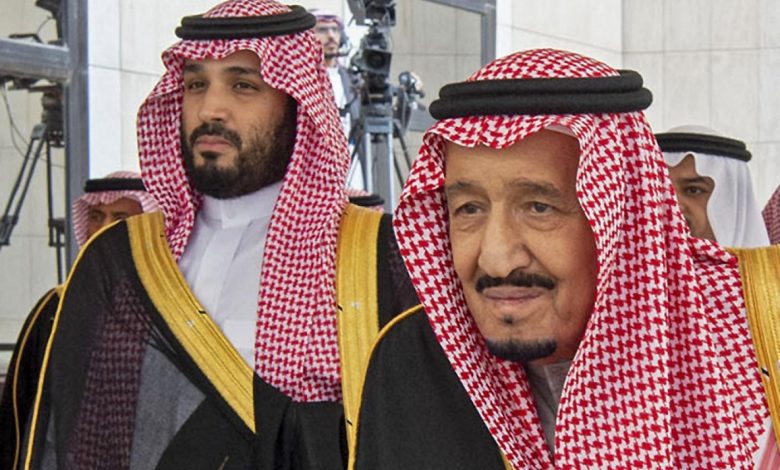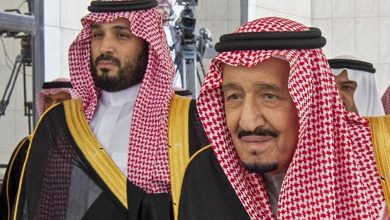King Salman to abdicate throne to his son

The Washington Institute for Near East Policy said that King Salman has practically begun the procedures to abdicate the throne to his son, Crown Prince Mohammed after the latter was appointed prime minister.
The institute stated that the transfer of power from the Saudi monarch to his son, the crown prince, would consolidate the prince’s control. This might be a prelude to an unprecedented abdication of King Salman from the throne.
On the 27th of this September, a royal order was issued appointing Crown Prince Mohammed bin Salman as the new prime minister of the Kingdom of Saudi Arabia.
According to the institute, this sudden announcement – which contradicts the Kingdom’s fundamental law and the traditional arrangement of the king as prime minister – legitimizes the political power bin Salman has enjoyed de facto for some time.
The health of 86-year-old King Salman has deteriorated since he took the throne in 2015, but he has continued to make public appearances (for example, his participation in weekly cabinet meetings, which he clearly will continue to do even though he has not No longer bears the title of Prime Minister).
Handing this position to Mohammed bin Salman may mean that the Saudi monarch is considering abdicating the throne, an unprecedented move given that Saudi kings usually rule until their death.
Previously, Mohammed bin Salman served as Deputy Prime Minister and Minister of Defense. While a replacement for the first post has yet to be appointed, his younger brother, Khalid bin Salman, will take over the defence position.
Khalid bin Salman is a former F-15 pilot who was promoted from the position of Deputy Minister of Defense and is considered the most trusted advisor to the Crown Prince.
It should be noted that the two princes are only in their thirties. Other cabinet changes were also announced, but there was no change in two key positions, as Prince Faisal bin Farhan kept the Ministry of Foreign Affairs. Prince Abdulaziz bin Salman, the older half-brother of Mohammed bin Salman, held the oil portfolio as the Minister of Energy, indicating no change in the Kingdom’s policy in this regard.
In other public policies, the move may affect the prospects for normalization between Israel and Saudi Arabia. King Salman is seen as an obstacle to this process, as he has slowed most efforts to establish public relations with Tel Aviv.
But if he were to abdicate, Riyadh might soften somewhat in this regard (although recent Saudi opinion polls indicate that citizens would not adopt such steps).
No change in relations with the United States is expected, although commentators have indicated that bin Salman as prime minister, will enjoy sovereign immunity when he travels abroad.
Previously, MBS may have been cautious about visiting the United States for fear of potential legal action over the murder of Washington Post journalist Jamal Khashoggi.
Regardless of the rationale for his promotion to this position, the effects of this change may be significant on Saudi Arabia and its foreign relations.





